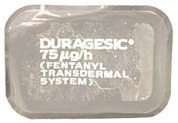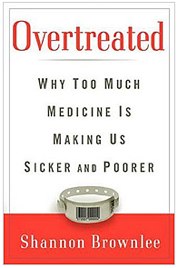Here’s some news you can use, especially if you work in an office and really can’t run to the bathroom every fifteen minutes without someone noticing. “Many sugar-free chewing gums contain a sweetener called sorbitol. Sorbitol is a laxative which is poorly absorbed by the small intestine.” Normally, this doesn’t matter, but if you’re one of those crazy people who takes something wayyy too far, and you tend to chew over a pack a day, you might want to switch to a different gum brand.
medicine

Former Amgen Sales Reps Say They Were Encouraged To Illegally Access Patient Records
Two former sales reps for the pharmaceutical company Amgen are suing “for lost wages and other compensation after refusing to participate in improper promotion of the company’s blockbuster psoriasis drug Enbrel.” They claim that Amgen encouraged them to “illegally access patient records to induce insurance carriers to pay for the pricey drug,” according to their attorney. Amgen promptly responded that the suits were without merit, and then handed out blister packets of popular drugs, branded desk calendars, and free t-shirts, so everything’s cool.

Study: People Who Buy Contacts Online More Likely To Take Poorer Care Of Their Eyes
The FDA has a set of specifications on proper eye care, and apparently people who buy their contact lenses online are less likely to follow those rules, reports a new study. The gap comes from having less trained, in-person medical attention and up-to-date prescriptions, and not poorer cleaning habits (although we wouldn’t recommend using dollar store saline solution just to save a few bucks).
Drug Companies Spend Almost $60 Billion On Marketing, $30 Billion On Research. What?
It’s okay for drug companies to spend oodles on advertising because they spend even more making sure their drugs are safe and effective, right? Not so much, according to a study in PLOS Medicine.

Minorities Not Prescribed Opioids As Frequently As Whites
If you’re black, Hispanic, or “Asian/other,” you might want to make sure your voice is heard loud and clear the next time you have to make a trip to the ER. Research published in the Journal of the American Medical Association shows that over the past 13 years, white patients were prescribed powerful opioid painkillers 31% of the time, versus 23% for blacks, 24% for Hisanics, and 28% for Asians and “others.”

Federal Agency Kills Lifesaving Hospital Checklist Program
The Office for Human Research Protections recently shut down a Johns Hopkins University program that had intensive care units across Michigan following “a simple five-step checklist designed to prevent certain hospital infections.”

Second Jersey Scammer Who Claimed To Cure Lou Gehrig's Disease Imprisoned
On December 12th, the U.S. District Court of New Jersey sentenced Elizabeth Lerner, a.k.a. Elizabeth Cooperman, to 33 months in prison for “falsely claiming that she could cure amyotrophic lateral sclerosis (ALS), commonly called ‘Lou Gehrig’s Disease.'” Her crime partner, former osteopath Charlene C. DeMarco, was sentenced to 57 months back in September.
../../../..//2007/12/28/bayer-is-recalling-certain/
Bayer is recalling certain diabetes test strips because they tend to over-report blood glucose level readings by 5 to 17 percent. Affected lots begin with WK7 and then either a D, E, F or G. All other lot numbers are fine and can be used. More information.

If You Can't Read Your Prescription, How Can Your Pharmacist?
As much as we’d like to believe that pharmacists have an X-man-style power that allows them to correctly read the worst handwriting imaginable… they don’t.

FDA Issues New Warnings Over Misuse Of Duragesic Patch
The FDA said today that a small number of preventable cases of accidental death have occurred since their first Duragesic warning in 2005, prompting them to ask Johnson & Johnson and the makers of a generic version to add new warnings. “Despite a July 2005 warning, the Food and Drug Administration ‘has continued to receive reports of deaths and life-threatening side effects after doctors have inappropriately prescribed the patch or patients have incorrectly used it,’ the agency said.”

"Overtreated" Says Too Much Healthcare Is Bad For Us
The general theme of the book “Overtreated,” the New York Times’ pick for best economics book of the year, is that we can cut a significant percentage of our health care costs—”between one fifth and one third,” says the author—and not have any impact on our level of health. As a nation, we tend to err on the side of too much treatment, exposing ourselves to unnecessary risks and racking up fees on procedures we could do without. And since doctors depend on a piecemeal approach to earning income, while at the same time dealing with significant financial risks from malpractice suits, they tend to push for more treatment, not less (they need to earn a living while also protecting themselves from accusations of doing too little).

Insurance Companies Announce Proposal To Increase Coverage For Hard-To-Insure
An insurance trade group today announced a “series of steps” to expand the number of Americans who have health insurance. “The proposals, approved by a board of the industry’s main trade group, would make it harder for insurers to cancel policies or deny coverage to people with pre-existing medical conditions. The steps would also limit the premiums that could be charged for such people.” The trade off? “The trade group also called on states to provide individual coverage for people who were likely to incur very high medical bills.”
../../../..//2007/12/17/japan-says-their-study/
Japan says their study of Tamiflu has proven inconclusive. They’re testing whether or not the flu medication is responsible for abnormal behavior in a percentage of patients. [Reuters]
../../../..//2007/12/13/merck-is-recalling-12-million/
Merck is recalling 1.2 million of its PedvaxHIB and Comvax vaccines after “quality-control checks found production equipment may not have been properly sterilized.” There have been no reports of problems—they’re just being extra careful. [Reuters]

40 Million Americans Cannot Afford Needed Heath Care Says CDC
The Centers For Disease Control And Prevention have issued a report saying that 1 in 5 U.S. adults, about 40 million people, cannot afford to get the health care they need.

Honey Better Than Dextromethorphan At Treating Coughs
Score another win for folk treatments: a new study says that honey is more effective than over-the-counter dextromethorphan syrups at treating a child’s cough: “The results were so strong that we were able to say clearly that honey was better than no treatment and dextromethorphan was not.”

10 Secrets Of Primary Care Physicians
The latest SmartMoney list of insider secrets and unpleasant truths is just as bleak as every other news item about health care these days, starting with the fact that a primary care doctor—”someone to coordinate your health care, help choose your specialists and be the first to diagnose just about any problem”—is getting harder to find, and fewer med students are showing any interest in the (comparatively) low-paying profession: “the number of primary-care internal medicine residency positions dropped by more than 50% in the past decade.”

How To Avoid The Medicare Donut Hole
Anyone who has Medicare and takes lots of drugs or a few very expensive ones (or who has an older relative who does) knows about the dreaded “donut hole”—the gap in coverage that happens each year if you have to spend a lot of money on prescriptions. If you’re above the poverty level but don’t have good gap insurance, it can be financially devastating. The New York Times notes that for a quarter of at-risk patients, planning ahead with generics may help you skirt the donut hole altogether. The big stumbling block is that you have to be prepared to discuss your personal finances with your doctor.


